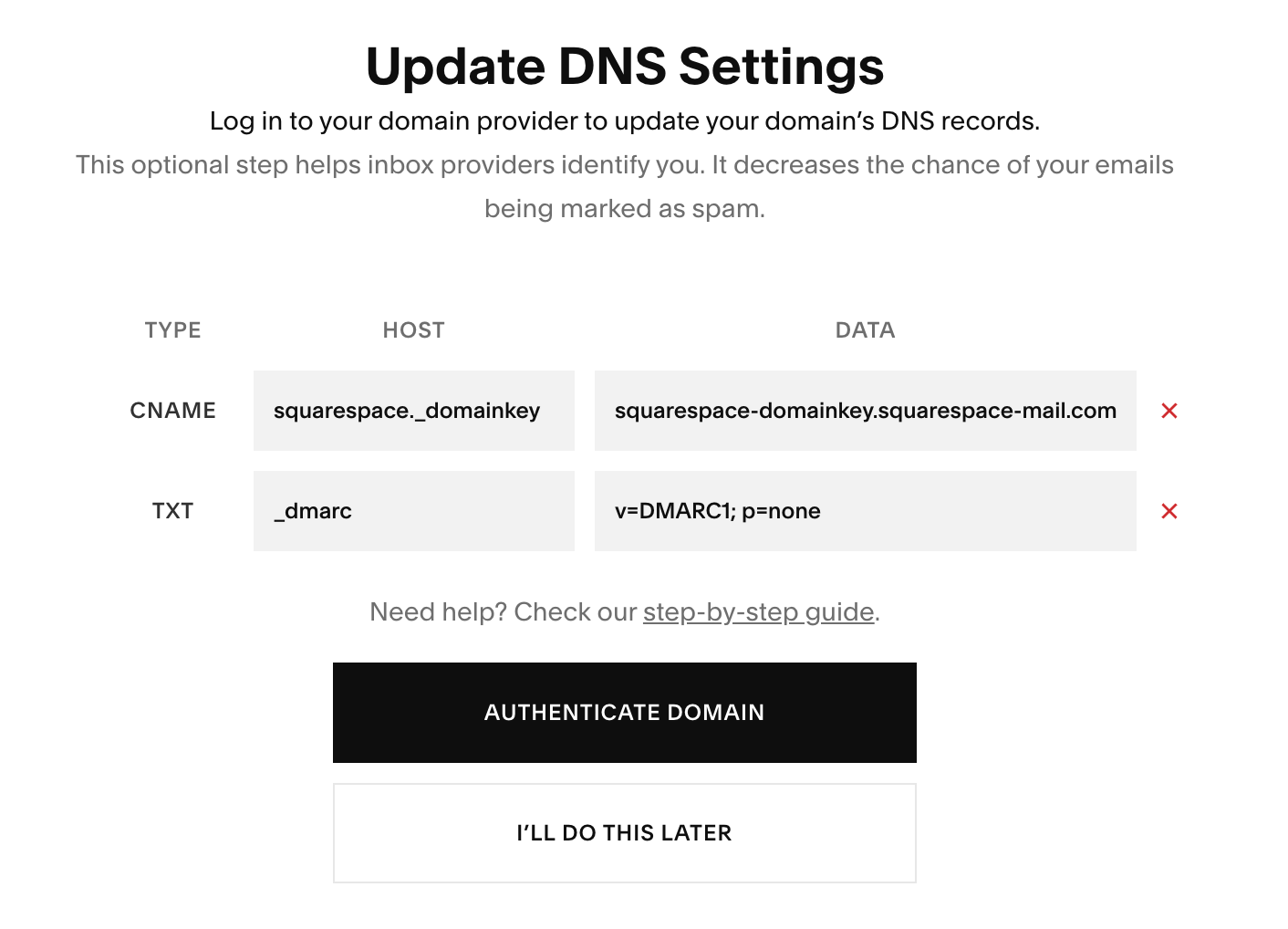
Email Domain Authentication: How to Verify Third-Party Domains for Email Campaigns
Custom email authentication helps prevent your campaigns from being marked as spam. For custom emails that match your domain (e.g., [email protected]), domain verification is essential for email deliverability.
For domains registered through Squarespace, verification is automatic. For third-party domains, you can either:
- Transfer the domain to Squarespace
- Manually add verification records to DNS settings
To manually verify a third-party domain:
- Access DNS Records
- For nameserver-connected domains: Use Squarespace DNS Settings panel
- For DNS-connected domains: Edit records through your domain provider
- Locate Verification Records
- Open Email Campaign settings
- Under Sender Details, click Authenticate
- Note the two required DNS records

Screenshot of DNS settings list
- Add Required DNS Records
First Record:
- Type: CNAME
- Host: squarespace._domainkey
- Data: squarespace-domainkey.squarespace-mail.com
Second Record:
- Type: TXT
- Host: _dmarc
- Data: [unique code provided in settings]
Provider-Specific Instructions:
IONOS:
- Visit my.ionos.com/domains
- Select domain → DNS
- Click Add Record
- Enter CNAME and TXT records
GoDaddy:
- Access dashboard.godaddy.com
- Navigate to Domain Settings → Manage DNS
- Add both records under DNS Records
Google Domains:
- Log in at domains.google
- Click DNS icon
- Add records under Custom resource records
Hover:
- Log in at hover.com
- Click DNS → Add Record
- Enter both records
Namecheap:
- Access namecheap.com
- Navigate to Domain List → Manage → Advanced DNS
- Add both records
Note: DNS changes may take up to 72 hours to resolve. Verification is complete when "Domain is unauthenticated" no longer appears under sender details.
Important: If your domain has a DMARC policy set to p=reject, domain verification is required before using sender details. Contact your domain provider if unsure about DMARC policies.
Related Articles

How to Add Email Subscriptions to Your Squarespace Blog

